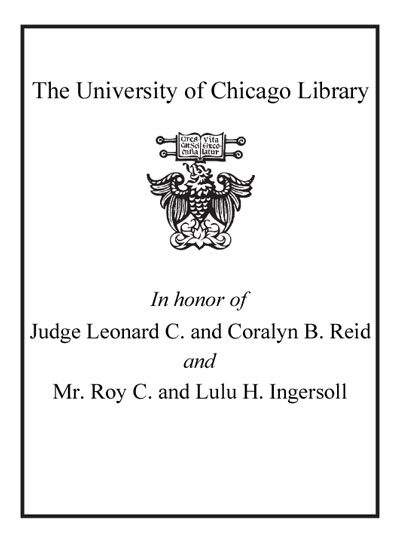Review by Choice Review
This text instantiates the philosophical sense of subjectivity. As a result, it may well be subject to criticisms that it is too personal, too intimate, too relativistic, and ultimately, not proper philosophy. It would, however, be a mistake not to recommend this book. Aftermath is an honest account of the author's experience and recovery from a brutal physical assault. Brison (Dartmouth College) acknowledges the unorthodox nature of the work: "Some may consider such first-person accounts in academic writing to be self-indulgent, but I consider them a welcome antidote to scholarship that, in the guise of universality, tends to silence those who most need to be heard." Brison captures the outrage of her experience, while carefully attending to her philosophical upbringing, its necessary revision in light of the experience, and the lessons to learn from the resultant metamorphosis. Along the way, she notes interesting comparisons between Descartes' method and her own, raises provocative questions regarding the long-standing philosophical "ideal" of objectivity, and offers concrete criticisms of contemporary accounts of personal identity as well as recent interpretations of narrative construction. Aftermath could serve as a useful companion text to Hilde Lindemann Nelson's Damaged Identities, Narrative Repair (CH, Mar'02). For upper-division undergraduates and above. H. Storl Augustana College (IL)
Copyright American Library Association, used with permission.
Review by Booklist Review
Brison brings a rape survivor's perspective and philosophical training to this absorbing exploration of violence, trauma, and personal recovery. Through the narrative recollection of her personal experience, Brison argues for the efficacy of trauma narratives as a means of healing and criticizes the social conventions of encouraging victims to forget traumatic events. She takes philosophy to task for eschewing personal narratives and dodging the messiness of real-life trauma--rape and racial oppression--in favor of more abstract studies. Her personal narrative and research on surviving rape will attract broad readership, and the more philosophical reflections will attract those interested in a multidisciplinary look at how individuals and society cope with the threat and reality of violence. A courageous work on how society treats trauma victims and how trauma victims can reclaim the recovery process and their lives. --Vanessa Bush
From Booklist, Copyright (c) American Library Association. Used with permission.
Review by Publisher's Weekly Review
In this movingly written meditation on the effects violence has had on her life, Brison evokes the experience of trauma, both for those who seek to understand its power and for survivors who might find solace in her words. A philosophy professor at Dartmouth, Brison was taking a walk in the French countryside when she was brutally attacked, raped and left for dead. This slim volume is the result of years of recovery both the physical healing in the immediate aftermath and the emotional repairs necessary over the subsequent decade. Her training as a philosopher makes this an intellectually stimulating read, even as she successfully avoids the academic tone that could be off-putting to a wider audience. Brison's reflections on memory and forgetting and the manner in which traumatic events divide time and affect personality and relationships will resonate with anyone who has experienced great pain and suffering, as well as with the people who love and care for them. As she writes on the importance of telling the story, "control, repeatedly exercised, leads to greater control over the memories themselves, making them less intrusive and giving them the kind of meaning that enables them to be integrated into the rest of life." This is a brave and inspiring book and with its references to literature, film, psychology and philosophy, a thought-provoking one, too. (Jan.) Forecast: Brison's work goes far beyond typical memoirs of surviving dreadful circumstances. Booksellers should recommend it to anyone reeling from the events of September 11. (c) Copyright PWxyz, LLC. All rights reserved
(c) Copyright PWxyz, LLC. All rights reserved
Review by Kirkus Book Review
How do you cope with the catastrophic calamity of sexual assault and near murder if you are philosopher dedicated to rational discourse? Those are the questions posed by Dartmouth professor Brison in a poignant account that begins on July 4, 1990, when, walking in broad daylight on a country road in southern France, she was grabbed from behind, raped, beaten, and left for dead. It was, for Brison, a complete undoing of her persona-a shattering of self and a destruction of her past and future. She speaks of it as a condemnation to live in a now of non-sense, non-reason, suffering the pathological fears, flashbacks, and other accoutrements of post-traumatic stress disorder. Worse, she was saddled with the shame that accompanies sexual assault and with well-meaning friends, colleagues, and family who urged her to get over it and to get on with her life. Here, she traces the nonlinear trajectory of her recovery via multiple pathways. Academically, she took risks to introduce the personal in a field noted for its lofty planes of abstraction. Historically, she explored the records of Holocaust and other trauma survivors and analyzed the varied political and social views of feminist and other historians, becoming politically active herself. Emotionally, she had the loving support of her husband. Medically, she was helped by individual and group therapy, as well as for drugs to fight depression, insomnia, and anxiety. Physically, she learned self-defense. Throughout, she emphasizes the necessity, indeed the life-saving value, of narrative. Telling one's story over and over, she notes, the details will vary, but each retelling helps reconnect the self to the world. Metaphysically, the self gains meaning only in relation to others. By the end of the decade (coinciding with the end of her assailant's prison term), Brison has overcome her terror, borne a child, regained a sense of control, and is again "at home in the world." A moving diary of personal trauma and recovery.
Copyright (c) Kirkus Reviews, used with permission.
Review by Choice Review
Review by Booklist Review
Review by Publisher's Weekly Review
Review by Kirkus Book Review

